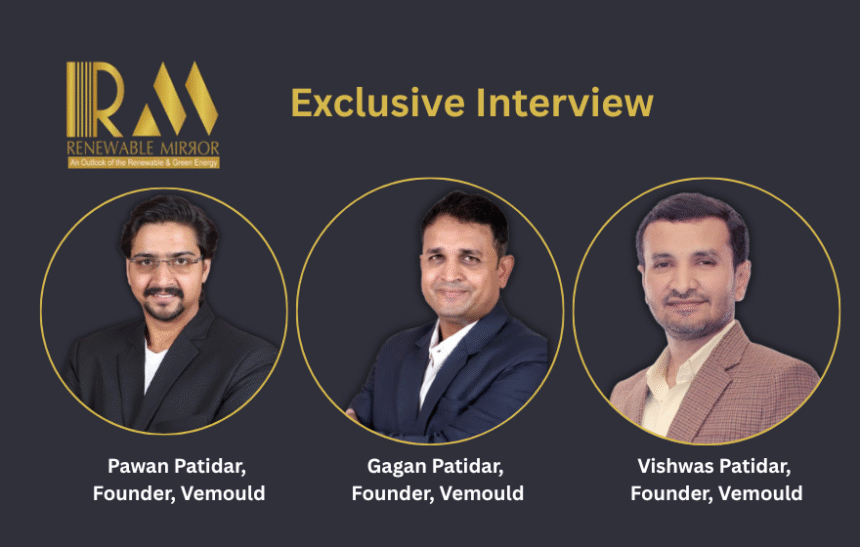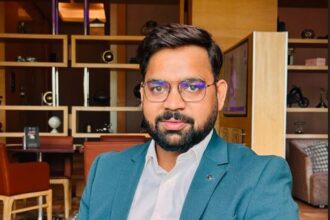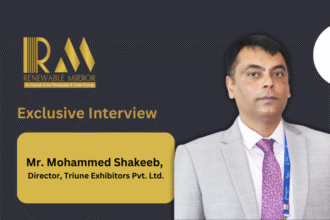Last Updated on November 10, 2025 by Author
Q1: What was the company’s initial vision when it was established, backed by over 30 years of industry expertise, and how has that vision evolved to meet current market demands?
A: When Vemould was established, our initial vision was clear and ambitious:
To leverage collective industry expertise to create world-class, reliable, and cost-effective solar junction boxes designed for the evolving global solar industry.
From the beginning, we aimed to:
🔹 Ensure uncompromised safety & performance for PV modules
🔹 Promote Make in India manufacturing excellence with international quality standards
🔹 Deliver products that build trust and long-term value for module manufacturers and project developers
Over time, as the market evolved with new technologies like Mono PERC, TOPCon, HJT, and more stringent IEC certifications, so did our vision. Today, Vemould stands committed to:
⚡ Driving R&D-led innovation in junction box design
⚡ Supporting the transition to high-efficiency modules with next-gen solutions
⚡ Offering globally benchmarked, IEC-certified products with unmatched reliability
⚡ Being a partner of choice for both Indian and international solar manufacturers
Our journey reflects how a strong foundation of expertise, coupled with adaptability, can shape a company into a future-ready leader in the solar value chain.
Q2. Could you share insights into the development process behind integrating features like IP68 waterproofing and module diodes into your products, and explain how these innovations impact overall product performance?
A: At Vemould, we don’t just design for certification standards — we engineer for real-world performance and long-term reliability. With our core technical expertise and deep industry background, every single aspect of our products — from materials to micro-components — is carefully considered. This applies not only to our Solar Junction Boxes (JBs) but to every product we manufacture.
During the design, our NPD Engineering team ensures that junction boxes remain fully resistant to water, dust, and harsh outdoor conditions. This safeguards the module’s performance throughout its lifecycle. Our junction boxes feature latest-generation Twin Trench technology diodes, carefully selected down to the mil size of the chip. These diodes provide excellent reverse current protection, reduce hot-spot risks, and ensure higher energy yield and thermal stability over time.
We use high-grade PPO (Polyphenylene Oxide) material for our connectors. This ensures resistance against chemical reactions, fumes, and environmental stresses, giving the product extra service life, superior thermal stability, and consistent electrical performance.
Every component is designed for:
- Longevity – extended service life in extreme conditions
- Safety – minimized risks of failure or thermal runaway
- Efficiency – optimized electrical performance with minimal losses
- Compliance – meeting or exceeding international standards like IEC / TÜV
Q3: How does the company integrate sustainability into its product design and manufacturing processes, especially in relation to renewable energy solutions?
A: At Vemould, we believe sustainability starts with the way you think about a product. For us, it’s not just about making a junction box — it’s about making it last longer, perform better, and leave behind a lighter footprint on the planet.
When we design, we carefully choose durable and safe materials, like PPO-based plastics, that can withstand harsh conditions without reacting to fumes or chemicals. We also use advanced diode technologies that make solar modules more reliable and efficient — which means they generate more clean energy over their lifetime.
On the manufacturing side, we focus on using resources wisely — reducing waste, reusing wherever possible, and keeping our processes energy-efficient. By supporting Make in India, we also cut down on long-distance imports, which helps lower our carbon footprint while strengthening local supply chains.
In simple terms, every decision we make — from design to production — is guided by one thought: how can this product help the world move closer to a sustainable, renewable energy future?
Q4. In what ways does the company ensure consistent product quality across all manufacturing stages through enhanced inspection and testing capabilities?
A: From raw material selection to the final product, we follow a zero-compromise approach to ensure reliability, safety, and performance.
Our production process is guided by a well-defined Quality Assurance Plan (QAP) that includes:
- Incoming material inspection, where every batch of components and raw material is tested for compliance with standards.
- In-process quality checks at every assembly stage to detect and correct any deviation before moving forward.
- Advanced testing setups, including high-voltage tests, thermal cycling, diode function testing, pull tests, and IP (Ingress Protection) tests, to validate durability and performance under real-world conditions.
- Final 100% inspection before dispatch to ensure each product meets IEC and TÜV standards.
Behind these systems is our experienced R&D and quality team, who continuously analyze feedback and field performance data to improve our processes.
Q5: What diplomacy does the company employ to build and maintain long-term client relationships, and how is client feedback leveraged to drive innovation and inform product development?
A: We believe that strong client relationships are built on trust, transparency, and teamwork — not just transactions. Our approach to diplomacy is rooted in understanding each customer’s unique needs and working with them as partners in progress, rather than as mere suppliers.
We maintain long-term relationships by:
- Open communication – keeping clients informed, involved, and heard at every stage of collaboration.
- Commitment to consistency – delivering on promises related to quality, timelines, and support.
- Technical partnership – engaging with clients on design improvements, technical troubleshooting, and new product co-development.
Client feedback is a vital part of our innovation cycle. Our R&D and product teams closely analyze customer inputs, field experiences, and performance data to refine existing designs and develop next-generation solutions. Many of our upgrades — such as improved waterproof sealing, high-efficiency diode integration, and material enhancements — have come directly from this feedback-driven development process.
Q6. How does the company adapt to and anticipate changes in the regulatory landscape within the electrical power sector, both nationally and internationally?
A: At Vemould, we understand that the electrical and renewable energy sectors are constantly evolving — shaped by new technologies, safety standards, and sustainability regulations. Staying ahead of these changes is central to how we operate.
Our approach involves three key pillars:
🔹 Proactive Compliance
We don’t wait for regulations to catch up — we anticipate them. Our technical and compliance teams closely monitor updates from national and international regulatory bodies such as BIS, IEC, and UL, ensuring our products consistently meet or exceed the latest global standards.
🔹 Continuous Learning & Upgradation
Vemould’s engineering and quality teams undergo regular training on new compliance norms, safety protocols, and testing methodologies. This allows us to integrate regulatory insights directly into our design, testing, and manufacturing processes.
🔹 Collaborative Adaptation
We actively engage with certification partners, industry experts, and clients to understand emerging expectations in the renewable energy ecosystem. This collaborative approach helps us adapt quickly while maintaining the reliability and safety that our customers expect.
By combining regulatory foresight with technical agility, Vemould ensures that every product we deliver is future-ready, globally compliant, and aligned with India’s vision of becoming a clean energy leader.
Q7: What are the company’s key strategic priorities for the next few years, and what major initiatives or innovations are being undertaken to drive progress toward those goals?
A: At Vemould, our strategic priorities for the coming years are centered around innovation, sustainability, and expanding our leadership in the renewable energy sector.
Key Priorities:
- Technological Innovation – Continuously enhancing our product portfolio with features like advanced diode integration, improved thermal stability, and robust waterproofing to meet evolving module requirements.
- Sustainability & Localization – Strengthening our commitment to Make in India, eco-friendly materials, and resource-efficient manufacturing practices to reduce environmental impact.
- Market Expansion – Expanding our reach in domestic and international markets while building long-term partnerships with solar module manufacturers.
- Customer-Centric Excellence – Leveraging feedback loops to drive product improvements and offer solutions tailored to specific market needs.
Major Initiatives & Innovations:
- Developing next-generation solar junction boxes compatible with emerging technologies like TopCon and bifacial modules.
- Investing in state-of-the-art testing and automation for higher consistency, reliability, and scalability.
- Strengthening R&D capabilities to anticipate future market trends and regulatory changes, ensuring products are always future-ready and globally compliant.
In essence, Vemould’s strategy is to combine cutting-edge technology, sustainable practices, and customer-driven innovation to shape the future of solar energy solutions — making renewable energy safer, more efficient, and more accessible worldwide.










